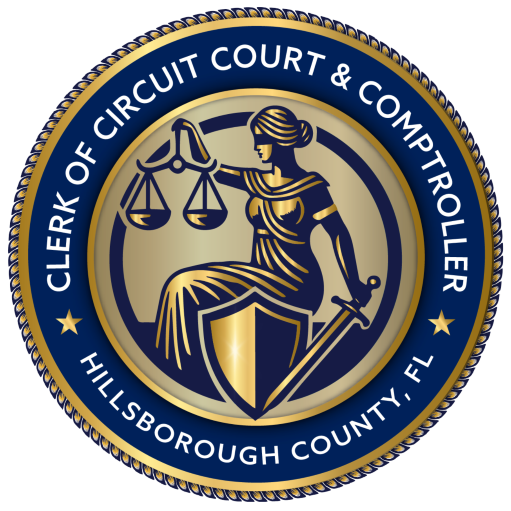- H
-
>
-
>
-
>County Civil
County Civil
The County Civil Department maintains the records and documentation for cases involving eviction law suits, small claims and other civil law suits up to $50,000 which include car repair disputes, release of personal property and payment information for a judgment.
Can I file a lawsuit to recover money owed to me?
How do I view a County Civil court file?
Electronic viewing of many court records, indexes and dockets as well as non-confidential document images is currently available on our Hillsborough Online Viewing of Electronic Records (HOVER) site.
If you are authorized under Florida Rules of Judicial Administration to view a court file but are unable to view it online and/or you need a copy, you may view or pick up a copy of the file at our Tampa Edgecomb or Plant City locations. To allow adequate time for redaction processing, it may take four business days for your file to be available for on-site viewing and/or pick-up. We suggest that you pre-order the file for onsite viewing or pick-up by completing the Order Form for County Civil files.
Someone hit my car. How can I sue their insurance company for my repair bills?
I bought a car and they won't give me a title. How do I get a title?
How can I get my car back when I have a payment dispute with the repair shop over the bill?
How can I get my car released when it has been towed without my permission and the towing company is holding my car for towing and storage fees?
How do I get my personal property out of the repair shop when I do not agree with the amount of the bill?
F.S. 713.76 allows the owner, customer, or any person that has an interest in the property including an attorney to have the property released to them. To have the property released, you must come to the Clerk’s Office and present a final bill and payment in the form of cash, cashier’s check, attorney trust account check, or surety bond for deposit into the Court Registry. The payment must also include the statutory fee charged by the Clerk. The amount deposited is held in the Court Registry for one year and the repair shop has the opportunity to file a lawsuit to claim the money during that time. After one year, the person who placed the deposit into the Registry must complete an Application for Return of Bond Posted to Release Lien Against Personal Property to ask to have the deposit returned to them. A notice is sent to the Lienor/Repair shop giving them 15 days to respond to the request to release the amount on deposit with the Clerk. If no response is received, the Clerk will release the deposit less the statutory fee to the person who placed the funds into the Registry.
F.S. 713.76 applies to any personal property that is not specifically mentioned in any other statute.
How do I serve civil summons, subpoenas and documents?
How can I find out who the proper party is to sue if the company is not listed with the Secretary of State in Tallahassee?
What happens at a pretrial hearing? What is a pretrial hearing?
How does mediation work?
Can I go to mediation if I have not filed a lawsuit?
Why wasn't I notified that I have a judgment against me?
What is the interest rate for judgments?
How can I pay off a judgment?
How long will my driver's license be revoked due to a judgment?
How do I reschedule a hearing that I cannot attend?
How do I get a foreign subpoena issued?
What are the fees and fines associated with this service?
What are my options for obtaining County Civil customer service from the Clerk's office?
|
Mail: PO Box 3360, Tampa, FL 33601-3360
|
|---|
|
Email: Contact us
|
|
Phone: (813) 276-8100
|
|
In person: Downtown Tampa, Plant City. See customer service locations. Schedule an appointment online for the Downtown Tampa location to shorten wait times at the Clerk's Office. Select Civil Courts - Appt as your appointment service type.
|
Related Documents
